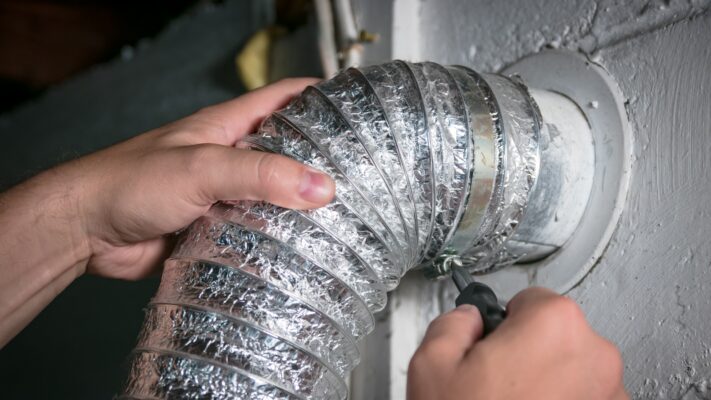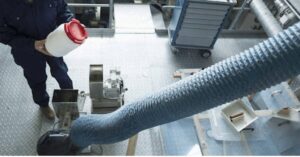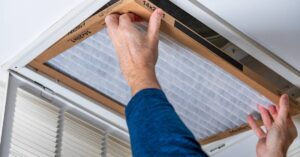Humidity can create problems for ductwork in homes. When it affects the air duct, it can lower the air quality. High humidity can worsen the temperature, putting pressure on the system and leading to damage. Over time, you may need air duct replacement for better indoor air quality since humidity can badly affect the ducts. Too much humidity weakens the ductwork and can lead to issues. In this blog, we will discuss how humidity affects duct replacement.
Mold Growth
Humidity makes mold growth a problem in the home. When indoor humidity exceeds 60%, the air creates places in the ductwork where mold can grow. We all know the consequences of mold growth; it can not just harm the air quality but also have a huge impact on the health of your loved ones and damage the ductwork. Mold growth in your air duct can often make them sick, and if you have pets or children at your home, the situation can get worse. According to the EPA, the humidity level in your house should not exceed more than 60%; if it exceeds that percentage, it can support mold growth. The ductwork in high-humidity environments needs regular air duct cleaning for home to avoid replacement.
Poor Performance
Another problem that can happen due to humidity is poor performance due to air duct leaks. If there is high humidity in your space, it can cause vapor buildup in your ductwork, resulting in leaks. It also makes HVAC systems work harder to heat and cool the home. So, if you find that your HVAC system is not working well, get professional help. If they suggest air duct replacement or cleaning, get it done as soon as possible to improve home’s air quality with air duct cleaning and avoid your HVAC damage
Causes Of High Humidity With Air Conditioning Units
Now, let’s discuss the common cause of humidity with air conditioning units.
Oversized System
An oversized AC system can cause high humidity because the compressor turns on and off too often. This frequent cycle means the system doesn’t run long enough to remove moisture, making it do a poor job of controlling humidity. To fix this problem, choosing the right system size can help control moisture better. Otherwise, too much-uncontrolled humidity will badly impact your ducts.
Single Speed
A single-speed air conditioner only works at one speed, making it difficult for the system to control temperature and humidity. The unit keeps running until the thermostat shuts off, which doesn’t help much with humidity control. A variable-speed HVAC system adjusts its speeds to remove more moisture and keep the air better.
Negative Air Pressure
Negative air pressure means too much air is pulled in from outside. A poorly designed ventilation system and ducts can cause this, creating an imbalance that raises humidity indoors.
Leaving The Fan On
When the fan stays on, it keeps moving air even after the AC stops cooling. This brings moisture back into the room instead of letting it drain out, keeping humidity high. So, leaving the fan on may seem helpful, but it doesn’t fully remove moisture.
Old Unit
When an air conditioner ages, it can’t cool or control humidity well. An aging system often struggles with keeping temperatures normal and may need frequent repairs.
Conclusion
Humidity changes how your HVAC system works and affects your house’s comfort. High humidity makes the air feel warmer in summer, so the cooling system works harder, raising bills. It happens vice versa in the winter, which can also increase bills. Too much moisture lowers performance and efficiency and can lead to costly repairs. So, if you are facing an issue with humidity, make sure to get professional Air Duct Cleaning. They can help you resolve this problem very quickly.






